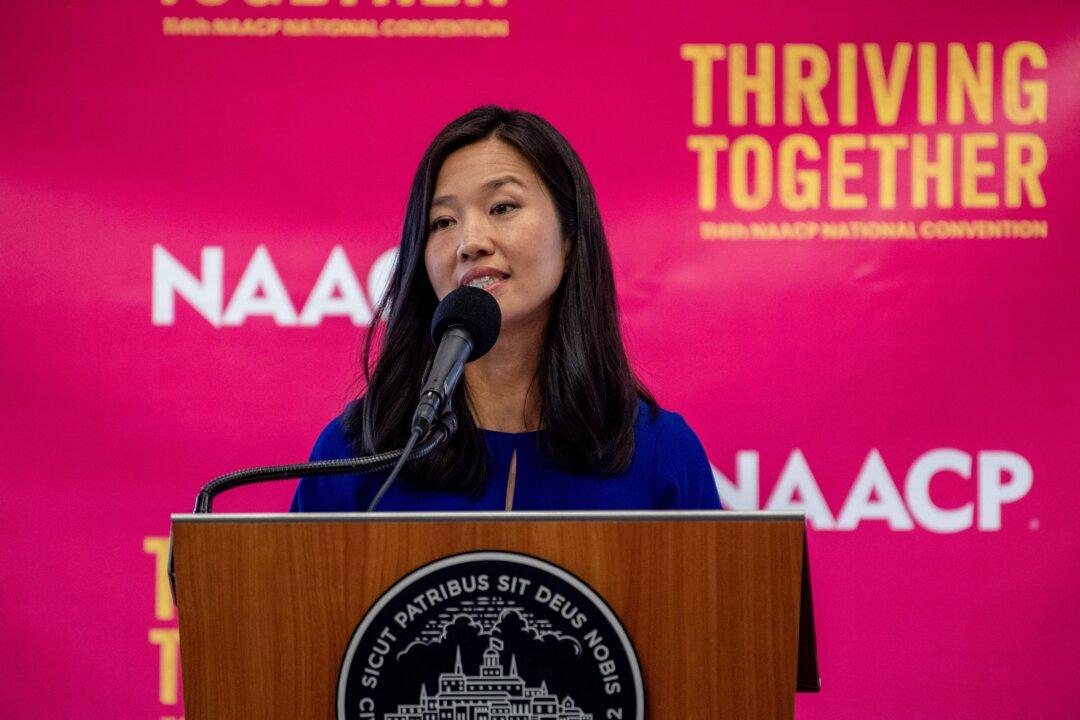Boston Mayor Michelle Wu signed an executive order on July 31 banning the use of fossil fuels in new construction and major renovation of city-owned buildings, as part of a commitment to climate action and to “advance racial and economic justice.”
The executive order, for which Ms. Wu teamed up with Green New Deal Director Oliver Sellers-Garcia, the Operations Cabinet, and local climate and labor advocates, went into effect immediately.




